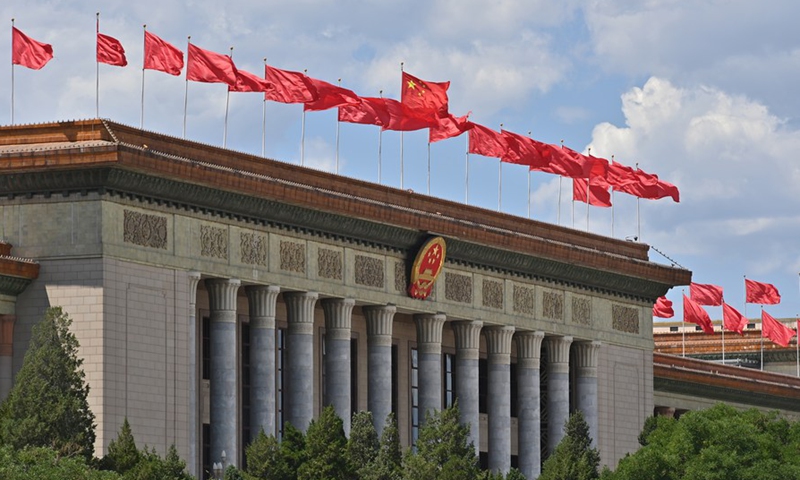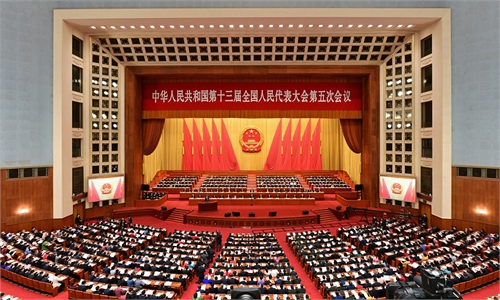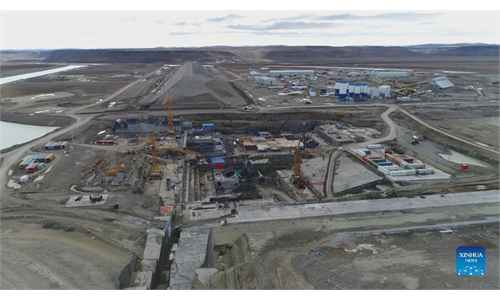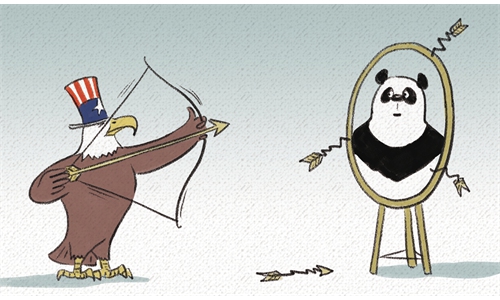New sector added to CPPCC members with focus on environmental development
Upcoming two sessions to underscore China’s most important political event returning to normal following COVID adjustment: experts

Two Sessions Photo:Xinhua
The list of the members of the 14th National Committee of the Chinese People's Political Consultative Conference (CPPCC) was unveiled with a new sector - the environment and resources sector - added, which some experts said has great significance as environmental protection constitutes a fundamental part in pursuing Chinese modernization.
Meanwhile, with the adjustment and optimization of the country's epidemic prevention and control measures, this year's "two sessions," one of the most important annual political events, is expected to return to normal, experts said.
There are 2,172 members from 34 sectors, with 85 from the newly established environment and resources sector, media reported on Wednesday.
The first session of the 14th National Committee of the CPPCC will start on March 4 and the 14th National People's Congress will kick off its first session on March 5, the country's top legislature announced on December 30.
In line with the guidelines of enhancing and improving the work of the CPPCC issued by the Central Committee of the Communist Party of China (CPC), the 13th National Committee of the CPPCC has been pushing forward the establishment of the environment and resources sector.
In recent years, some regional committees of the CPPCC began adding this new sector and regional committees across the 31 provinces, autonomous regions and municipalities have added the new sector, called the environment and resources or resources and the environment.
"No matter whether it's about the comprehensive economic and social development or Chinese modernization, environmental and resource protection, as an important part of the Five-Pronged Overall Approach since the 18th National Congress, conveys great significance," Zhu Lijia, a professor of public management at the Chinese Academy of Governance, told the Global Times on Wednesday.
To pursue Chinese modernization, environmental protection and construction is fundamental, and setting up this new sector could help policy makers and advisors play bigger roles in formulating environment-related policies and measures, Zhu said.
Li Zhenhan, a member of the regional committee of the CPPCC in East China's Shandong Province, was quoted as saying in media reports on Wednesday that setting up this new sector could help allocate resources and bring members with various backgrounds in the environment, resources and energy who used to work in different sectors together.
Environmental protection will continue being a major focus of the work of the CPC in the future. In a report delivered by General Secretary of the CPC Central Committee Xi Jinping to the 20th National Congress of the CPC in October 2022, Xi pointed out that we will advance the Beautiful China Initiative and take a holistic and systematic approach to the conservation and improvement of mountains, waters, forests, farmlands, grasslands and deserts.
"We will carry out coordinated industrial restructuring, pollution control, ecological conservation and climate response, and promote concerted efforts to cut carbon emissions, reduce pollution, expand green development and pursue economic growth, he said. We will prioritize environmental protection, conserve resources and use them efficiently, and pursue green and low-carbon development," Xi said.
This year's two sessions will also be the first annual gatherings for the country's two main political bodies to set priorities and plans involving the economy, military, trade, diplomacy and the environment for the next year since the country downgraded its COVID-19 management.
Some experts believed that as the country's social and economic activities have been brought gradually back to normal following the adjustment and optimization of the epidemic prevention and control measures, the country's most important annual political activities are also expected to go to back to normal.
Some experts considered that the economic recovery and China's population decline would be major focuses of this year's two sessions, especially when many observers and analysts remain bullish on China's economic prospects. Also, the Chinese mainland's population declined for the first time in 61 years, which attracted the world's attention.
Among 2,172 members, there are 124 from the Hong Kong Special Administrative Region (HKSAR) and 29 from the Macao SAR. Junius Ho Kwan-yiu, a Hong Kong Legislative Council member who is also the member of the 14th National Committee of the CPPCC from the HKSAR, told the Global Times that he will focus on proposals such as legal services exchanges between the mainland and Hong Kong, high-tech development and energy-saving and environmental protection during this year's meetings.
"This year's two sessions will mainly focus on the economic recovery, including how to accelerate the production resumption and push forward high-quality growth," Zhu said. In terms of the declining population, Zhu said that it's a common question that many developed countries and developing countries face after economic and social development reaches a certain level.
"How to turn China's demographic dividend into a talent dividend will also be a major focus of this year's meetings," he said.




